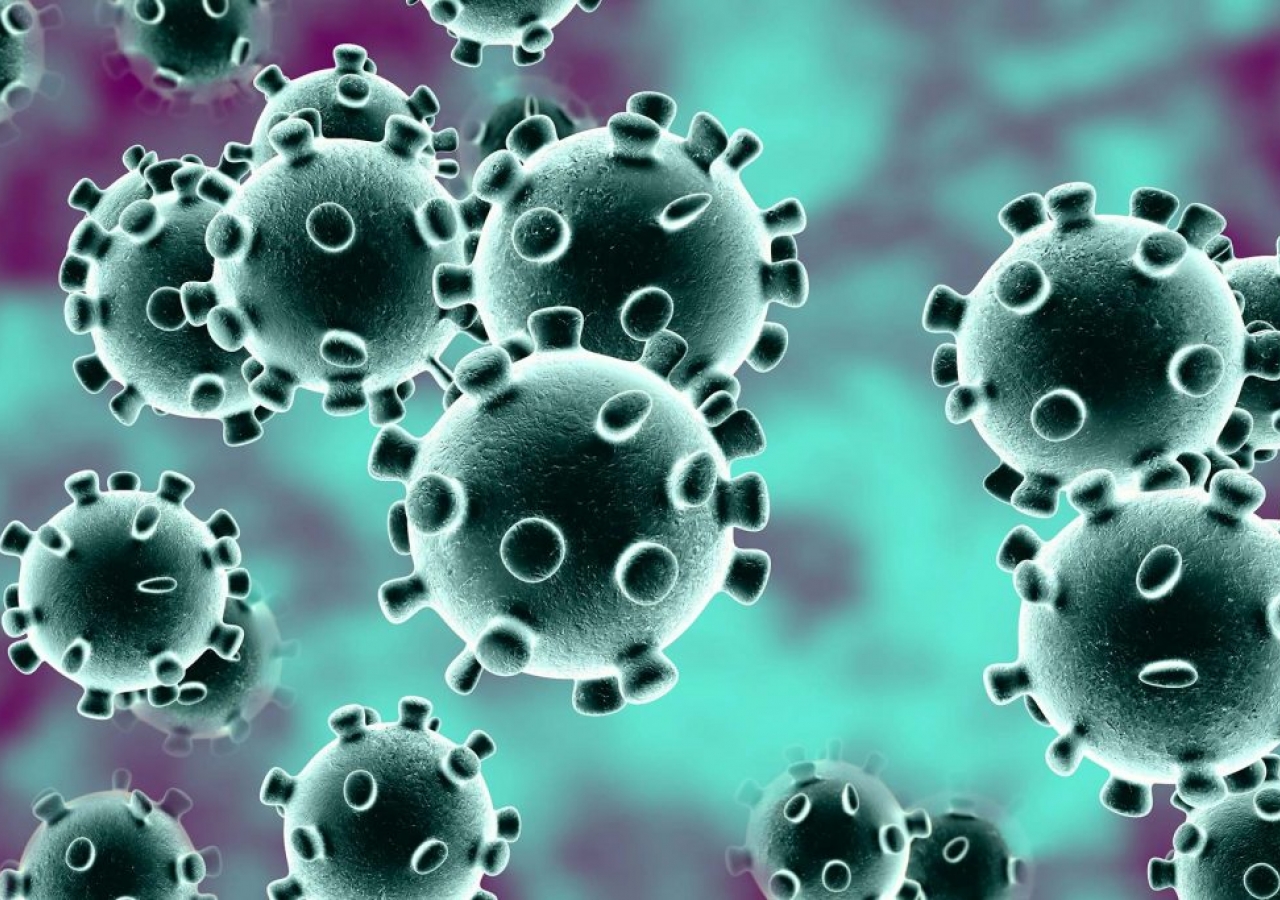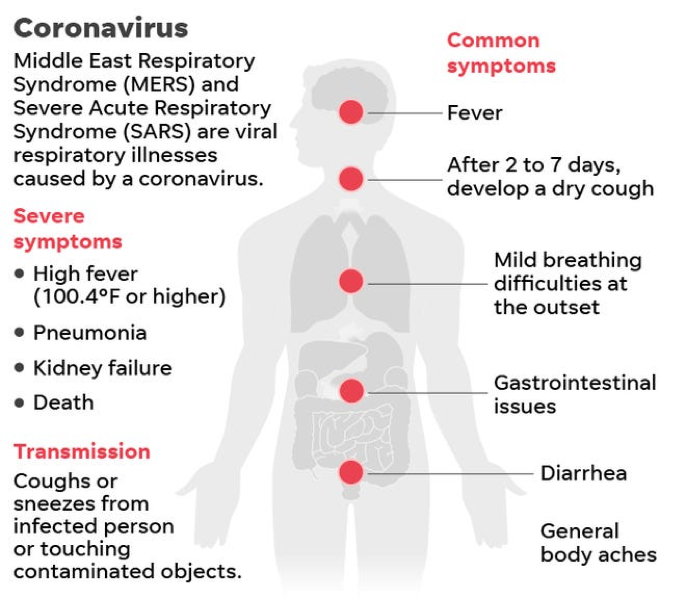What is Coronavirus?
According to the World Health Organization, Coronaviruses are a family of viruses that cause illness ranging from the common cold to more severe diseases such as Middle East Respiratory Syndrome (MERS) and Severe Acute Respiratory Syndrome (SARS).These viruses are transmitted between animals and people. SARS, for instance, was believed to have been transmitted from civet cats to humans while MERS travelled from a type of camel to humans. Several known Coronaviruses are circulating in animals that have not yet infected humans.
A novel Coronavirus, identified by Chinese authorities on 7 January, 2020 and currently named 2019-nCoV, is a new strain that had not been previously identified in humans. Little is known about it, although human-to-human transmission has been confirmed.
What are the symptoms?
According to the World Health Organization, signs of infection include respiratory symptoms, fever, cough, shortness of breath and breathing difficulties. In more severe cases, it can lead to pneumonia, severe acute respiratory syndrome, kidney failure and even death. Reports say the incubation period of the Coronavirus remains unknown, but other sources say it could be between 10 to 14 days.
The World Health Organization has been working with Chinese authorities and global experts from the day they were informed, to learn more about the virus, how it affects the people who are sick with it, how they can be treated, and what countries can do to respond.
Because this is a Coronavirus, which usually causes respiratory illness, World Health Organization has advised people on how to protect themselves and those around them from getting the disease.
• Frequently clean hands by using alcohol-based hand rub or soap and water;
• When coughing and sneezing cover mouth and nose with flexed elbow or tissue – throw tissue away immediately and wash hands;
• Avoid close contact with anyone who has fever and cough;
• If you have fever, cough and difficulty breathing seek medical care early and share previous travel history with your health care provider;
• When visiting live markets in areas currently experiencing cases of novel Coronavirus, avoid direct unprotected contact with live animals and surfaces in contact with animals;
• The consumption of raw or undercooked animal products should be avoided. Raw meat, milk or animal organs should be handled with care, to avoid cross-contamination with uncooked foods, as per good food safety practices








